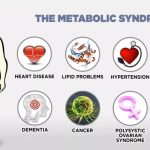Let’s talk about something that’s on the rise—literally and figuratively: obesity rates in the United States. According to the latest data, 42.4% of adults in the U.S. are considered obese. That’s right—more than 4 out of 10 adults now fall into that category, and it’s the first time we’ve ever crossed the 40% mark as a nation.
But before we start pointing fingers at fast food or blaming “just one more cookie,” let’s take a closer look at what’s really going on—and what we can do about it.
🚨 What Is Obesity, Exactly?
In simple terms, obesity means having too much body fat. It’s usually measured using something called BMI (Body Mass Index). If your BMI is 30 or higher, you’re considered obese.
But here’s the thing: this isn’t about numbers or clothing sizes—it’s about health. Obesity increases the risk of serious health conditions like:
- ❤️ Heart disease
- 🧠 Stroke
- 🍬 Type 2 diabetes
- 🧬 Certain cancers
- 😓 Joint problems and sleep issues
And it’s not just about adults—childhood obesity is rising too, and that’s a whole different conversation (which we’ll save for another blog!).
📊 Why Are Obesity Rates So High?
Good question. It’s not because people suddenly stopped caring about their health. There are a lot of complex reasons:
1. Food Everywhere, All the Time
From drive-thrus to gas stations to food delivery apps, unhealthy options are always within reach. And let’s face it—processed food is cheaper, faster, and more convenient than cooking fresh meals every day.
2. Lack of Movement
With jobs that require long hours in front of screens and entertainment that keeps us sitting (hello, binge-watching), many of us simply aren’t moving enough.
3. Stress and Mental Health
Did you know that stress, anxiety, and depression can lead to overeating or emotional eating? For many, food is comfort. And comfort, in today’s world, is often high in sugar, salt, and fat.
4. Lack of Sleep
Poor sleep messes with hunger hormones and cravings. Sleep-deprived brains are more likely to reach for donuts over salads.
5. Inequality and Access
Not everyone lives near a Whole Foods. Many communities lack access to affordable, nutritious food or safe places to exercise.
🧠 It’s Not Just About Willpower
Let’s clear this up: obesity is not a character flaw. It’s a health issue that’s influenced by genetics, environment, income, culture, mental health, and more. Shaming or blaming people only makes things worse.
💰 Obesity’s Price Tag
It’s not just waistlines that are affected—wallets are too. Obesity-related healthcare costs in the U.S. are estimated at nearly $173 billion per year. That’s billions with a “B.”
People with obesity face higher medical costs, often need more doctor visits, and sometimes deal with job discrimination or missed workdays due to health problems.
✨ So, What Can We Do?
The good news? There are things we can do—as individuals and as a community—to slow down and reverse this trend.
✅ Start with Small Habits
- Take the stairs instead of the elevator
- Drink water before meals
- Swap soda for unsweetened drinks
- Add one vegetable to every plate
🍽 Eat More Real Food
Focus on whole foods: fruits, veggies, lean protein, and healthy fats. You don’t have to quit your favorite foods—just eat them mindfully and in moderation.
🏃 Move More
You don’t need a gym membership. Go for a walk, stretch during TV commercials, dance in your kitchen—just move your body daily.
🧘 Take Care of Your Mind
Meditation, journaling, therapy, or even a good talk with a friend can help manage emotional eating triggers.
😴 Sleep Like It Matters (Because It Does!)
Try to aim for 7–8 hours of quality sleep. It makes a bigger difference than you think.
👨👩👧 Let’s Build Healthier Communities
Real change also needs to happen at the community and policy level. That means:
- Better access to affordable, healthy food
- Safer places to walk, run, and play
- Nutrition education in schools
- Encouraging work-life balance so people have time to care for themselves
Because health shouldn’t be a luxury—it should be a basic right.
💚 Final Thoughts
Obesity is a big deal, yes. But it’s not the end of the story.
We have the power to make small changes that lead to big differences. It’s not about perfection—it’s about progress. Every step counts. Every choice matters. And every one of us deserves to feel good in our bodies and minds.
So let’s stop judging, start supporting, and focus on what really matters: living well, with kindness, awareness, and balance.
P.S. You don’t have to do this alone. Share this post with someone who needs a gentle nudge—not a lecture. 😊





